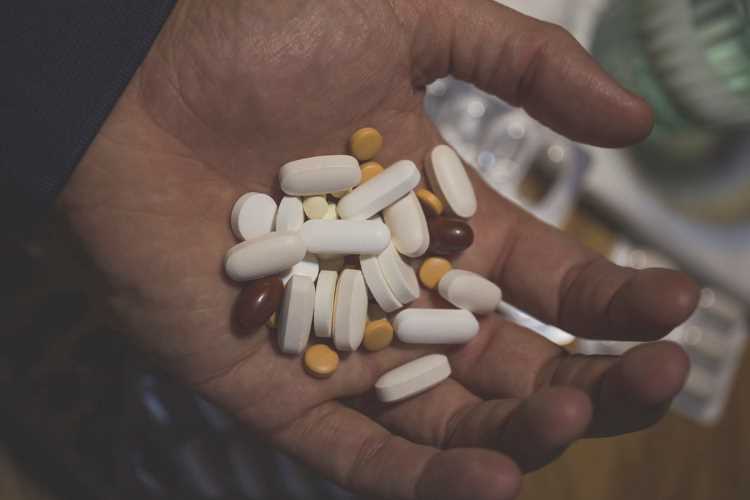
India’s drug and pharma industry: As India faced severe criticism last year regarding the quality of its cough syrups, the country’s drug regulator proposed implementing a system to test medicines before exporting. The government is considering making glycol testing mandatory for all syrup and solvent manufacturers. This initiative comes months after the World Health Organisation (WHO) issued a warning about four cough syrups manufactured by Maiden Pharmaceuticals Ltd, a company based in Haryana, which were linked to the death of 66 children in Gambia. This raised serious concerns about New Delhi’s drug safety approval standards.
In January 2023, the WHO once again issued a medical alert, this time warning against two cough syrups made in India following the death of children in Uzbekistan. The Central Drugs Standard Control Organisation (CDSCO) has now submitted a proposal to the Union health ministry, stating that medicines should undergo testing at government labs before being exported. While this represents a step towards enhancing compliance in India’s drug industry, only time will tell if this measure will have a significant impact, considering the gap between implementation and execution.
READ | Digital literacy: From skill gaps to employment crisis
India’s drug manufacturing industry is a major player in the global pharmaceutical market. It ranks as the third-largest exporter in the world by volume and the 13th largest by value. India is also the largest provider of generic drugs globally, accounting for 20% of global exports in terms of volume. Given its substantial manufacturing scale, it is essential for the government to establish stricter codes for drug manufacturing to safeguard India’s credibility at the global level.
Even with stronger mechanisms in place, the responsibility for quality control largely falls on individual manufacturers. With India exporting to 200 countries, it is impractical to test every batch of cough syrup before shipment. However, countries importing drugs must make it mandatory to test the products they receive. Some countries like Nigeria have their own testing facilities in the country of origin. European countries conduct tests at the point of entry, while the US performs random tests at ports of entry.
In the case of Gambia, the Indian government sources attempted to shift blame to Gambian authorities for failing to test the syrups for safety. However, resolving the issue at hand requires coordination between manufacturers, exporters, and the government, rather than playing the blame game.
What is wrong with Indian drug and pharma industry
Adulteration has been a widespread problem in the country, particularly with cough syrups that were found to contain excessive amounts of diethylene glycol and ethylene glycol. Both chemicals are toxic to humans and can be fatal, according to the WHO. Pharma companies find it profitable to use these chemicals in syrups as they have a sweet taste and are soluble in water. These toxic substances are used as substitutes for more expensive non-toxic ingredients like glycerine.
The fact that Indian companies found it acceptable to export lethal syrups to poorer countries reveals a sense of insensitivity. The government’s failure to control the quality of exports should be condemned. A 2014 paper by the National Bureau of Economic Research, based in Cambridge, found that the quality of drugs supplied by Indian companies to Western countries is usually far higher than what is sent to low- and middle-income countries.
The Maiden Pharma case is not an isolated incident in the history of the Indian pharma industry. While Maiden is a repeat offender, other companies such as Aurobindo Pharma have also encountered problems for selling substandard antibiotics. Aurobindo is one of the largest suppliers of generic drugs in the US and is currently under FDA scrutiny. Recently, Marion Biotech faced criticism for deaths in Uzbekistan.
These incidents have tarnished India’s image as a global exporter of drugs. Despite these issues, the Indian government has been reluctant to implement stronger regulations and oversight mechanisms for the drug industry. Corruption, bureaucratic inefficiencies, and a lack of political will are common deterrents in India.
Despite such occurrences, the government has introduced a new bill which aims to further lower standards and decriminalise several offenses. The government is seeking to enhance the Ease of Doing Business (EoDB) by decriminalising various offenses. Under the proposed New Drugs, Medical Devices, and Cosmetics Bill 2022, drug authorities have the discretion to waive trials and prison time for offenders if the accused company pays a fine. In simple terms, even if a drug is found to be contaminated with glass particles, fungus, or heavy metals, the manufacturer may receive reduced or no prison time, regardless of the impact on the health of the general public.
In their book ‘The Truth Pill,’ which focuses on India’s pharma industry, authors Dinesh Thakur and Prashant Reddy say that the regulatory failures impact not only Indian citizens but also the citizens of all its trading partners. While the Indian government has been trying to maintain the image of the pharma industry as a manufacturing success story, tightening regulatory measures can safeguard the industry from global scandals.

